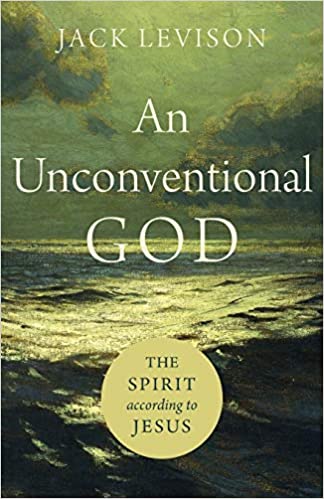BEN: The prayer life of Jesus (p. 91) is important, not least because it reminds us Jesus is living his life as a genuine human being. He needs to pray to communicate with the Father, even Jesus needs to pray. This I would call another example of his true humanity, and of divine condescension—a refusal to draw on the omnis, in this case omniscience, in order to fully identify with humanity. Does this make sense to you?
JACK: My German friends would say, Einverstanden! Total agreement. I wrote this: “We are told in the gospel of Luke that Jesus prayed. Overwhelmed by the crowds pressuring him, he prayed (Luke 5:16). Confronted by a decision, such as who should accompany him, he prayed (6:12). When he wanted a bead on his followers’ belief, he prayed (9:18). And, of course, in anguish before his death, he prayed (22:44).” Jesus didn’t just pray to look or seem human. Jesus needed to pray.
BEN: One of the most intriguing insights in this whole book is what you say towards the close of chapter 5, namely that when Jesus is on the brink of what humans would call success the Spirit leads him back to the Father, or even leads him into confrontation with the Dark Lord, Satan. It is interesting how Luke characterizes the ongoing battle with Satan and his defeat in the wilderness temptations, and then as a result of the ministry of the 70. It is an ongoing battle, and as one Evangelist says, Satan leaves Jesus until an opportune time. Jesus’ exorcisms are one of the things that truly distinguished Jesus’ ministry from all the ministries of prophets, priests, and kings in the OT and from John the Baptizer’s (not John the Baptist—he was not a member of a Protestant denomination J) ministry as well. Satan has to be sent packing for the kingdom to come and it is an ongoing battle. Perhaps the reason we don’t hear much about the Spirit or Satan in the Gospels on the whole is because the real turning point in the battle against Satan comes not in the exorcisms, or even in the teachings of Jesus but through the death and resurrection of Jesus. When Satan loses the power of death as a threat to human beings including Jesus, D-Day, as Oscar Cullmann once said, has happened on the cross. The turning point in the war with the powers of darkness paradoxically comes in Jesus’ death on the cross. Would you agree with this observation of Cullmann’s?
JACK: How could I ever disagree with Oscar Cullmann? I cut my teeth on his writings at Cambridge. (Priscilla and I even have a little green cooler, which someone gave us for our wedding 38 years ago, called an Oscar and made by Coleman. We call it, without thinking or blinking, the Oscar Cullmann. “Hey, Jack. Don’t forget the Oscar Cullmann!” Priscilla will call down to the garage of our townhouse.)
I actually think we often do too little with the death and resurrection of Jesus in the United Methodist Church. We are great telling the story of God’s love and justice. But for me, everything hangs on the death and resurrection of Jesus. When I look at the world and, I’m sorry to say, the church, not to mention my own foibles and faults, I am tempted to throw my hands up and walk away; then I remind myself he died in tragic love and rose from the dead. Everything changed when that happened. Yes, D-Day—costly, tragic, bloody D-Day—took place, making VE Day inevitable.
The battle is there during the life of Jesus. The difficult (even for Luke, who reframes it) saying about blasphemy, which is found even in the Gnostic Gospel of Thomas, connects exorcism with the Spirit, though certainly not in the clearest way possible. (That chapter took me an awful lot to research and to write.) But, in the end, the death and resurrection signal the death knell for the devil, thank God!












